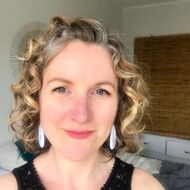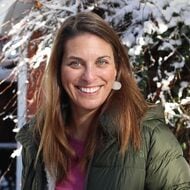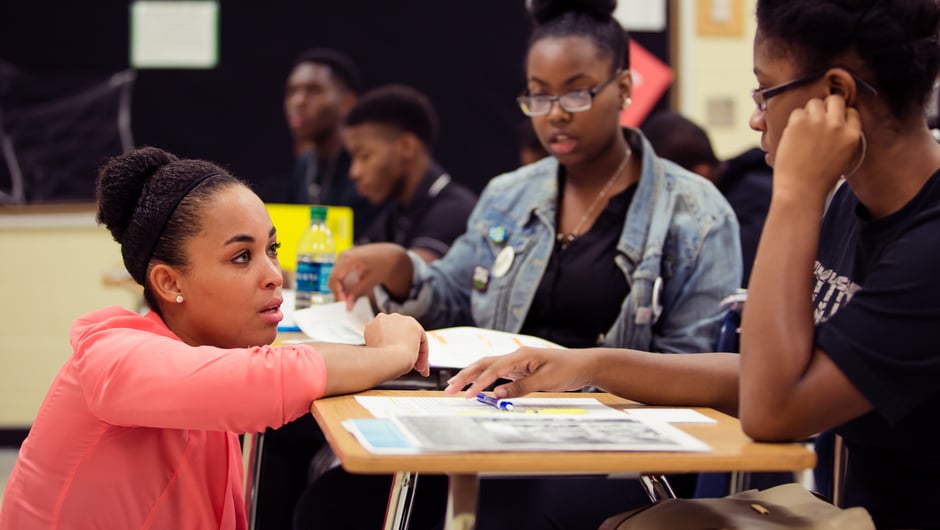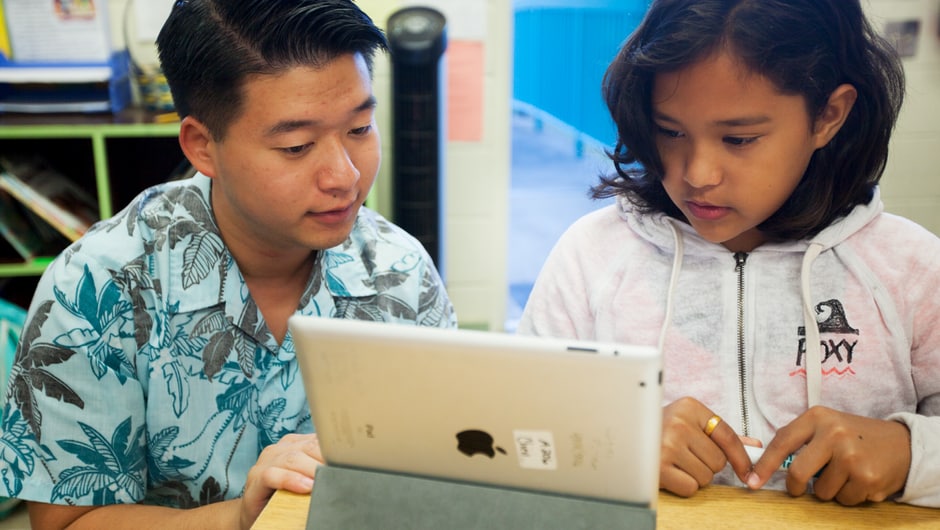Meet the 2019 Social Innovation Award Winners
Winners and finalists were chosen for their bold ideas on how to impact education in their communities.
Meet the three winners and six finalists chosen for this year's The Arthur & Toni Rembe Rock Social Innovation Award and learn about their big ideas for expanding opportunities in the classroom and beyond.
The Arthur & Toni Rembe Rock Social Innovation Award recognizes bold, new innovations that expand opportunities for students in low-income communities and address the root causes of educational inequity. Now in its eighth year, this annual competition brings together budding alumni and corps member entrepreneurs to compete for up to $100,000 in funding to develop social ventures that eliminate barriers to educational equity and excellence.
2019 Social Innovation Award Winners
Bryan Boyce (South Dakota ’09) Founder & Executive Director, Cow Tipping Press
Disrupting the status quo around developmental disability is a deeply personal issue for Bryan Boyce, whose younger brother has disabilities. Bryan founded Cow Tipping Press, a Minnesota-based nonprofit that partners with local disability service organizations to offer creative writing classes to adults with developmental disabilities.
“Our ambition is to change the way a generation thinks about developmental disability,” Bryan says.
After each class, participants publish their best work in a book and read their stories and poems in coffee shops, bookstores, and breweries. Bryan recruits diverse, equity-minded college students to teach the classes, many of whom go on to dedicate their careers to supporting individuals with disabilities.
As a Social Innovation Award winner, Bryan is eager to test new ideas and scale his venture. He plans to hire a second full-time staffer and pursue national content partnerships to more widely share authors' voices.
“If we're successful, that will mean our authors' writing is being engaged with as widely as any similarly underrepresented voice,” Bryan says. “We've only just scratched the surface of what kind of dent that can make in our profoundly inequitable status quo.”
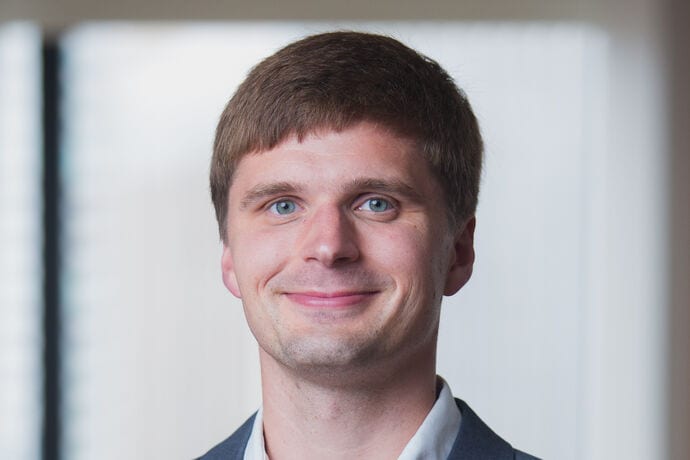
Teachers can also download a curriculum that incorporates Cow Tipping students’ stories, which can help elevate a diverse set of authors in the classroom. The program has served over 400 students with disabilities to date, including some who now co-lead the classes.
Bryan’s advice to aspiring entrepreneurs is to find a balance between staying true to your vision and listening to those who may disagree with your idea.
“Knowing when to choose which one is an art, not a science,” Bryan says. “You're not always going to get it right, but that doesn’t mean you shouldn’t try.”
Vanessa Luna (Los Angeles ’14) Co-Founder & Chief Program Officer, ImmSchools
As a former DACAmented teacher and undocumented student, Vanessa Luna understands the barriers that prevent many immigrant students from reaching their full potential, especially those who are undocumented. While undocumented students are legally protected by the U.S. education system, less than 1 percent of school districts are equipped with policies and practices to support them and their families.
Wanting to do more for her students and community, Vanessa co-founded ImmSchools, an immigrant-led non-profit that envisions a world where all students, no matter their immigration status, have access to resources and safe, welcoming, and inclusive schools.
“The immigrant experience is deeply rooted in the pursuit of educational opportunity,” Vanessa says. “The intersection of immigration and education must be urgently addressed as we seek educational equity for all.”
ImmSchools partners with K-12 schools and districts to provide ongoing professional learning for educators and workshops for undocumented and immigrant students and families. The organization also strategically advises and advocates for the passage of immigrant-friendly policies in school districts.
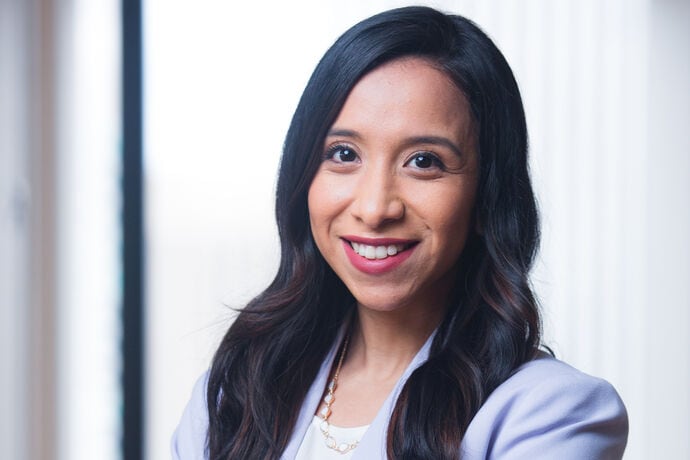
Vanessa says the Social Innovation Award will accelerate ImmSchools’ impact by increasing their capacity and the number of schools the program serves, reaching more educators who serve immigrant communities.
“In the next 5-10 years, ImmSchools will be a critical agent in transforming the K-12 system into an inclusive and resourceful environment for immigrant students and parents,” Vanessa says. “We aim to expand our efforts to 30 to 40 schools and at least 10 districts in the top cities serving undocumented students and families.”
Vanessa was recently named on the 2019 Forbes 30 Under 30 list in recognition of her work at ImmSchools and her leadership in supporting undocumented students and families. She views her own lived experience as a critical asset for addressing the issues ImmSchools is seeking to solve. Her advice for aspiring social entrepreneurs is to ensure your solution is not only informed but also led by those directly impacted.
“Our proximate experiences yield revolutionary ideas. Our leadership is what is needed now more than ever,” Vanessa says. “I like to always remember that we are the ones we have been waiting for.”
Taylor Toynes (Dallas-Fort Worth ’14) Co-founder & Executive Director, For Oak Cliff
Taylor Toynes has deep roots in Dallas’s South Oak Cliff neighborhood. The area is known as a “superblock,” encompassing a large geographic area in South Central Dallas, bound by busy freeways. It’s the place where he grew up and taught as a corps member. It’s also a community impacted by generations of systemic oppression.
Together with a fellow alumnus, Xavier Henderson (DFW ‘15), Taylor co-founded For Oak Cliff in 2017. The organization serves as a hub for the 40,000 residents living in the neighborhood and provides education and wraparound services that promote social mobility.
“Our ultimate goal is liberation for the community,” Taylor says. “In order to do that, we believe that we have to heal our neighbors together and inspire each other to believe in ourselves.”
The founders believe in a holistic, “dual-generation” approach, to their services. Parents can take GED classes and participate in workforce training while their children engage in early learning enrichment opportunities. As For Oak Cliff continues to grow, the organization remains laser-focused on expanding services and transforming lives in the 75216 zip code.
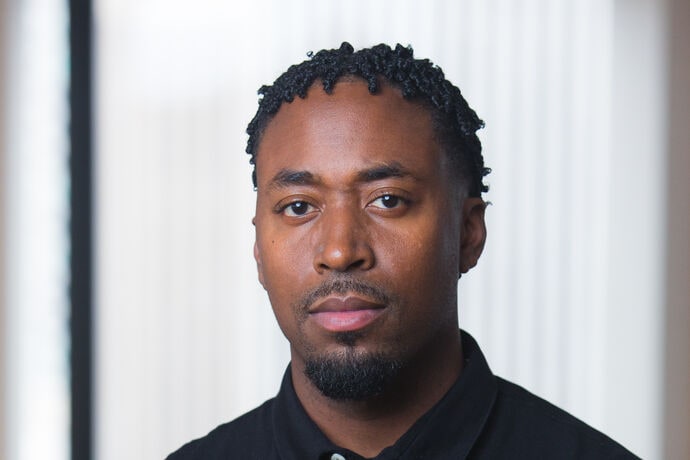
Taylor says winning the Social Innovation Award is validation that For Oak Cliff is on the right path. In addition to gaining broader exposure and support, he hopes other organizations will feel inspired to duplicate the For Oak Cliff model. Most of all, he’s excited for the opportunity to do more for his neighborhood.
“This award allows us to have the capacity to save more lives within our community,” Taylor says.
Taylor’s advice to future entrepreneurs is to remain grounded: “Believe in yourself, have pure intentions, and remain grateful and humble. The marathon continues.”
Meet This Year’s Finalists
These six finalists are contributing a tremendous diversity of perspectives and ideas for how to address equity issues. More than 55 percent of this year’s finalists identify as people of color, and 67 percent are women. Learn more about the ventures they’ve launched to address career readiness, food insecurity, Native rights, and more.
Jackie Bello (Baltimore ’09) Co-Founder & COO, Dent Education
As a teacher, Jackie went above and beyond to ensure that her most at-risk students graduated from high school—an experience that inspired her to make youth development her life’s work. Together with cofounder Rajan Patel, she launched Dent Education, a program focused on empowering under-resourced youth to discover and develop their potential to shape the world around them. The program engages predominantly Black students from low-income communities in Baltimore through paid after-school and summer programs to learn how to launch ventures that solve real problems. Students work in teams, guided by coaches and a community-based network of mentors, to learn mindsets and skills for building their own businesses. The program launched with eight students in 2017 and has grown to serve over 80 students in the last year. To date, students have earned over $80,000 through Dent programs.
Percilla Frizzell (Bay Area ’08) Founder, Sacred Generations
Educational inequity, mass incarceration, and climate injustice are interconnected issues that disproportionately impact Native California—a state with the largest Indigenous population in the nation. Recognizing a need for solutions rooted in an Indigenous worldview, Percilla founded Sacred Generations. The organization works to create a movement of healing by organizing tribal communities impacted by systemic injustice, to protect sovereign nations and honor the sacred. Restoring Native land and people, Sacred Generations is collecting data on issues impacting Indigenous communities, building civic leadership pathways for currently or formerly incarcerated Native families, and leading policy advocacy to champion tribal sovereignty. Sacred Generations was recognized on Fast Company's 2019 list of World Changing Ideas for developing groundbreaking voter education advocacy tools and policy innovations.
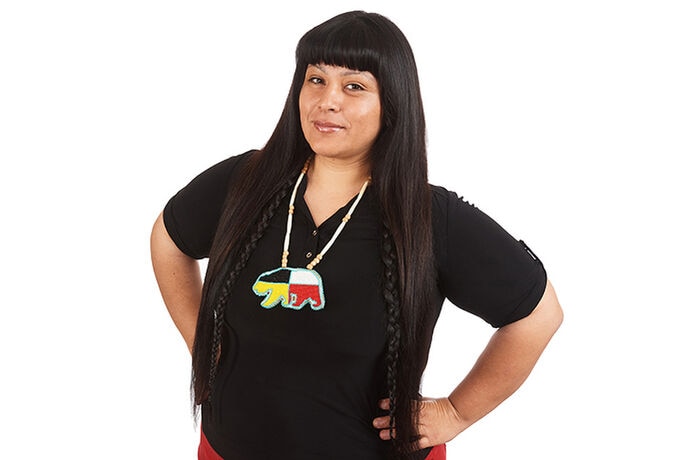
Elisa Hoffman (Greater Delta ’96) Founder & Executive Director, School Board School
As an elected member of the Cincinnati Public Schools Board of Education, Elisa Hoffman knew that there was a big difference between campaigning well and governing well. But in late 2017 as she looked around at all the organizations that existed to help candidates get elected, she realized that none were focused on helping people be effective once they took office. This experience led her to create School Board School, a program that empowers aspiring school board members and engaged citizens with the knowledge, skills, mindset, and network to drive systemic change as effective school board members and education advocates. After completing the six-month program, participants understand how the district operates and the specific changes they want to make to improve outcomes for children, and they know the seat from which they want to make their impact. Future school board members are ready to govern effectively, and all participants become informed constituents who are equipped to make significant and sustainable change in their school system.

Tanysha Nunnally (Metro Atlanta ’15) Co-founder & Executive Officer, Teach X
Schools in high poverty communities are less likely to have the resources and access to professional relationships to help prepare them for college and career opportunities. Inspired by her teaching experience, Tanysha Nunnally and her co-founder Troy Nunnally set out to reimagine what education could look like if underresourced schools were able to leverage outside professionals and support to prepare students for successful futures. They launched Teach X, an app that connects K-12 teachers to a diverse community of experts from in-demand careers such as technology and business. Teachers can use the app to collaborate with professionals on specific classroom projects. Together, they can co-create authentic learning experiences that allow students to engage with real-world problems.

Roy Renfro (Nashville-Chattanooga ’13) Co-Founder, CommUnity Fresh Foundations
A large percentage of students attending Knowledge Academies in Antioch, TN lack access to healthy, affordable food, as well as job training opportunities in the agricultural or culinary industry. After teaching at the school for five years, Roy Renfro and co-founder Raenel Stelly envisioned a way to address both of these challenges by launching CommUnity Fresh Foundations, based on their successful pilot program, Nash Top Chef. The program offers a subscription food box targeted towards low-income communities, paired with a job training program that can be integrated into the curriculum at any public school interested in starting an agriscience program. Students monitor a 3-acre plot and indoor hydroponics plants. The homegrown food is prepared by top Nashville chefs living in Nashville, who train students on the preparation process. Food box subscribers purchase from a rotating selection of meals that reflect the cultural diversity of the community and save over 50 percent on their weekly grocery bills.
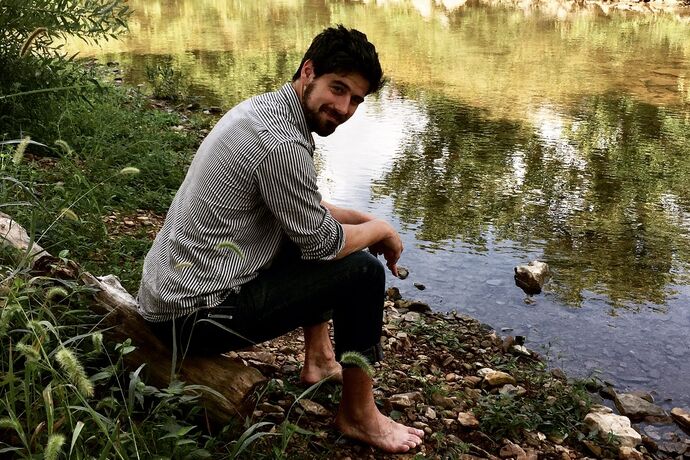
Suzy Wang (Greater New Orleans ’14) Founder, teachDELTA
During Suzy’s first year of teaching, she realized she had been calling on boys more than girls in her Algebra class. While confronting this evidence was difficult, it led Suzy to think about how teachers can easily collect data to uncover blind spots in their instruction. Suzy launched teachDELTA, which uses a voice AI device (think: Alexa for the classroom) that records during class and provides targeted analytics to teachers about possible bias in their instruction. Teachers can analyze reports on student participation, common phrases, and tone, and receive recommendations on how to improve their instruction. Suzy is currently piloting the idea with teachers in Louisiana and New Hampshire, the majority of whom found the app’s recommendations helpful for driving more equitable instruction.
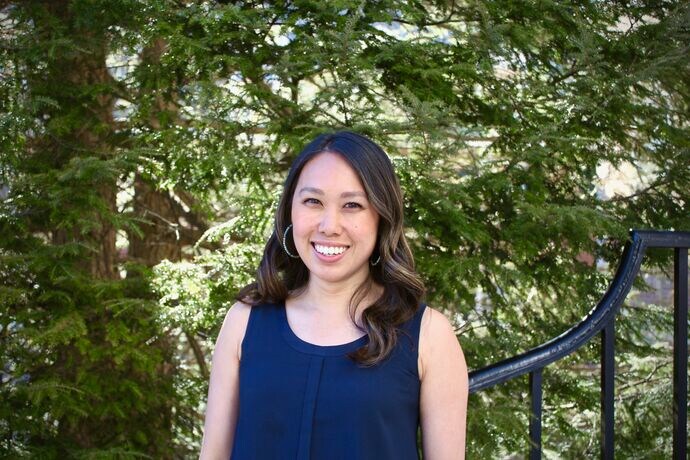
Sign up to receive articles like this in your inbox!
Thanks for signing up!
Content is loading...


